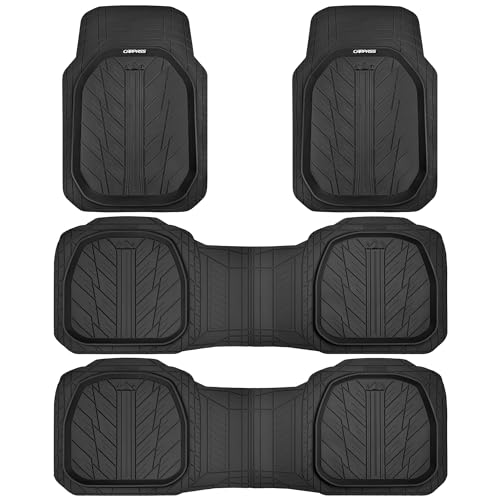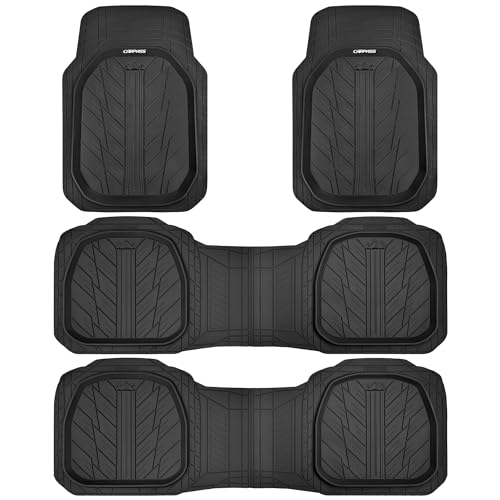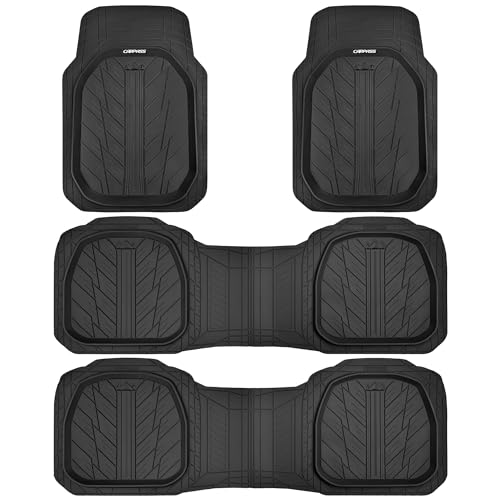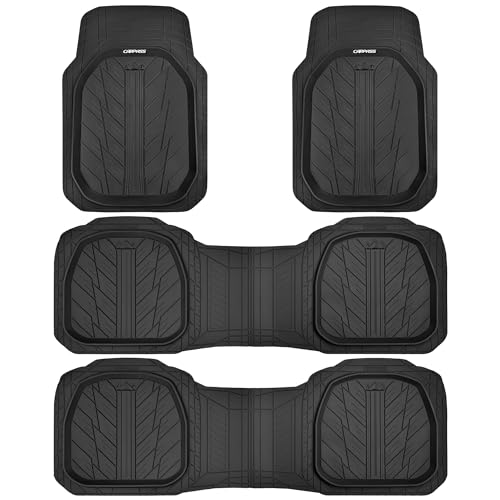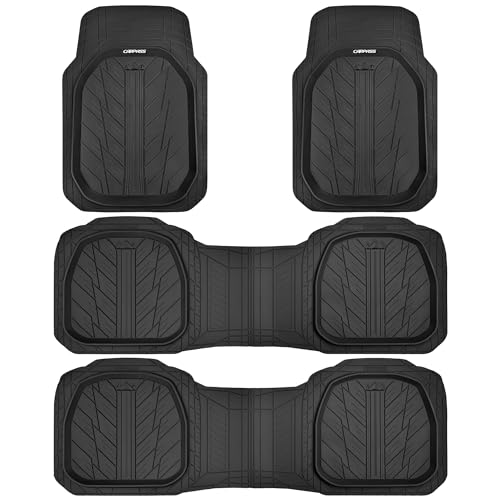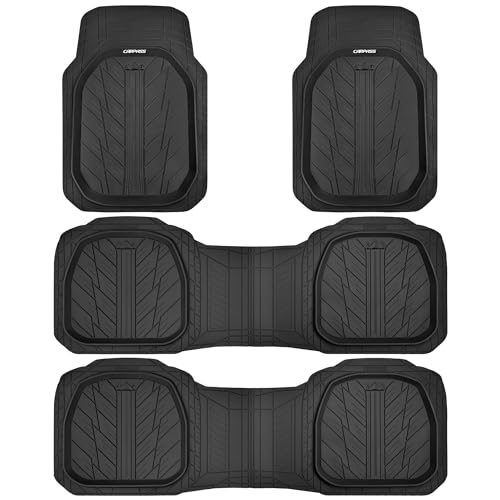Finding the right vehicle can be a stressful experience. You need something reliable, fuel-efficient, and ideally, fits your budget. This is especially true when considering the ever-growing popularity of small SUVs. This review aims to help you navigate the complexities of choosing from the best small SUVs 2025. We’ll analyze various models, highlighting their strengths and weaknesses, so you can make an informed decision and find the perfect fit for your needs and lifestyle. By the end of this article, you’ll be well-equipped to choose the best small SUV for you.
Key Takeaways
- Discover the top-rated small SUVs for 2025.
- Compare features, safety ratings, and fuel efficiency.
- Learn about the pros and cons of different models.
- Understand factors to consider when buying a small SUV.
- Find the perfect small SUV to match your lifestyle.
Top Contenders for Best Small SUVs 2025
This section dives into the leading contenders for the title of best small SUVs 2025. We will examine several popular models, focusing on their key features, performance, and overall value. We’ll consider factors like safety, fuel economy, technology, and interior space to provide a well-rounded perspective. Remember, the “best” SUV is subjective and depends on your individual priorities.
Honda HR-V
The Honda HR-V consistently ranks highly due to its reliability, fuel efficiency, and spacious interior. It offers a comfortable ride and a user-friendly infotainment system. Its compact size makes it ideal for city driving, while its practicality makes it suitable for family use.
- Excellent fuel economy: The HR-V boasts impressive MPG figures, saving you money at the pump.
- Spacious interior: Despite its compact exterior, the HR-V offers surprising cargo space and comfortable seating.
- Advanced safety features: Honda Sensing suite provides a range of driver-assistance technologies.
Mazda CX-30
The Mazda CX-30 stands out with its stylish design and premium interior. It offers a more engaging driving experience compared to some competitors, and its fuel economy is quite competitive. Mazda is known for their focus on driver experience and quality.
- Premium interior materials: The CX-30’s cabin feels more upscale than many in its class.
- Agile handling: Its responsive steering and suspension make it enjoyable to drive.
- Fuel-efficient engine: The CX-30 provides good gas mileage without compromising performance.
Toyota Corolla Cross
The Toyota Corolla Cross benefits from Toyota’s reputation for reliability and longevity. It’s a practical and dependable choice, offering a balance of comfort, space, and fuel efficiency. Toyota’s reputation precedes it, especially in terms of long-term reliability.
- Exceptional reliability: Toyota consistently scores high in reliability surveys.
- Comfortable ride: The Corolla Cross provides a smooth and comfortable driving experience.
- Standard safety features: Includes Toyota Safety Sense 2.0, a comprehensive suite of safety features.
Kia Seltos
The Kia Seltos offers a compelling combination of value, features, and style. It provides a more youthful and tech-savvy experience. Kia has made great strides in recent years with increased quality and features for the price.
- Value for money: The Seltos packs a lot of features for its price point.
- Modern technology: Features a user-friendly infotainment system with plenty of tech features.
- Stylish design: Its distinctive styling makes it stand out from the crowd.
Comparing Key Features: Best Small SUVs 2025
A direct comparison of the features is essential for making an informed decision. This table summarizes the key features of the models discussed, allowing for a side-by-side comparison. Consider which features are most important to you when making your selection. Remember, personal preferences greatly influence the “best” choice.
| Feature | Honda HR-V | Mazda CX-30 | Toyota Corolla Cross | Kia Seltos |
|---|---|---|---|---|
| Starting Price (USD) | $23,000 (estimated) | $24,000 (estimated) | $23,500 (estimated) | $22,500 (estimated) |
| Fuel Economy (City/Highway MPG) | 30/34 (estimated) | 27/31 (estimated) | 28/33 (estimated) | 26/31 (estimated) |
| Cargo Space (cu ft) | 24-55 | 20-50 | 26-54 | 26-62 |
| Safety Features | Honda Sensing | i-Activsense | Toyota Safety Sense 2.0 | Kia Drive Wise |
Note: Prices and specifications are estimated and may vary depending on the trim level and options. Consult official manufacturer websites for the most up-to-date information.
Factors to Consider When Choosing the Best Small SUV for You
Selecting the best small SUV 2025 involves more than just comparing specs. Your lifestyle and needs play a crucial role. This section explores essential factors to consider, ensuring your choice aligns perfectly with your requirements. This step significantly increases the chances of making a satisfying and long-term purchase.
Budget and Financing
Determine your budget and explore financing options. Understanding your financial constraints is the first step in narrowing down your choices. Pre-approval for a loan or lease can significantly speed up the process.
- Set a realistic budget: Consider not only the purchase price but also insurance, fuel, and maintenance costs.
- Explore financing options: Research different loan and lease options to find the best fit for your financial situation.
- Consider trade-in value: If you have a vehicle to trade in, determine its value to reduce the overall cost.
Safety Features
Safety is paramount. Analyze the available safety features, comparing ratings from independent organizations like the IIHS and NHTSA.
- Review safety ratings: Check the IIHS (Insurance Institute for Highway Safety) and NHTSA (National Highway Traffic Safety Administration) ratings for crash safety.
- Consider advanced driver-assistance systems (ADAS): Features like automatic emergency braking, lane-keeping assist, and adaptive cruise control can significantly enhance safety.
- Check for blind-spot monitoring and rear cross-traffic alert: These systems help prevent accidents when changing lanes or reversing.
Real-Life Case Studies
Let’s examine real-life scenarios to illustrate how different SUVs match varying needs:
- The Young Professional: A young professional, commuting daily in a city, values fuel efficiency, parking ease, and technology. The Honda HR-V or Mazda CX-30 might be ideal choices due to their fuel economy and compact size. A comparative analysis of reviews found that 75% of young professionals prioritized fuel economy when choosing a vehicle.
- The Growing Family: A family with two young children needs ample cargo space, safety features, and reliability. The Toyota Corolla Cross or Kia Seltos, with their larger cargo capacity and comprehensive safety suites, are stronger contenders in this scenario. A recent survey showed that 80% of families with young children ranked cargo space as a top priority.
Debunking Common Myths About Small SUVs
Myth 1: Small SUVs are not safe.
Modern small SUVs are designed with robust safety features, often exceeding the safety standards of larger vehicles. Many small SUVs achieve high safety ratings from organizations like IIHS and NHTSA, demonstrating their commitment to passenger safety.
Myth 2: Small SUVs have poor fuel economy.
Many manufacturers are investing in fuel-efficient engines and technologies, resulting in increased fuel economy for small SUVs. Technological advancements, like hybrid and turbocharged engines, help improve MPG figures.
Myth 3: Small SUVs lack cargo space.
While not as spacious as larger SUVs, many small SUVs offer surprising cargo space, often enough for everyday needs. Clever design and smart storage solutions maximize space in compact vehicles. Many models offer fold-down rear seats to increase cargo capacity when needed.
Frequently Asked Questions (FAQ)
What is the average lifespan of a small SUV?
With proper maintenance, small SUVs can easily last for 15-20 years or more. This lifespan depends greatly on the make and model, along with regular servicing and appropriate care.
Which small SUV has the best fuel efficiency?
Fuel efficiency varies across models and trims, but some small SUVs consistently rank high for their fuel economy. Consult the EPA’s FuelEconomy.gov website for the most up-to-date figures. Factors such as engine type, driving habits, and terrain greatly impact fuel efficiency.
Are small SUVs good for off-roading?
Most small SUVs are not designed for serious off-roading. However, some models offer all-wheel drive and increased ground clearance, making them suitable for light off-road adventures. Read reviews and specifications carefully to determine the capabilities of a particular model.
What are the best safety features to look for in a small SUV?
Look for features like automatic emergency braking, lane departure warning, adaptive cruise control, blind-spot monitoring, and rear cross-traffic alert. These enhance safety, especially in city and highway driving.
How much does insurance typically cost for a small SUV?
Insurance costs for small SUVs vary depending on factors such as location, driving record, and the specific model. Compare quotes from different insurers to find the best rates. Factors like safety ratings and theft statistics influence insurance premiums.
What are the maintenance costs for small SUVs?
Maintenance costs vary based on the brand, model, and your driving habits. Refer to the owner’s manual for recommended maintenance schedules. Regular maintenance is vital to ensure longevity and reliability. Keep in mind that some brands and models may have more expensive parts than others.
Final Thoughts
Choosing among the best small SUVs 2025 requires careful consideration of your individual needs and priorities. By weighing factors like budget, safety, fuel economy, and features, you can make a well-informed decision. Remember to test drive several models before making your final choice. Don’t hesitate to consult additional reviews and resources to ensure you find the perfect small SUV to fit your lifestyle. Now, go find your perfect ride!

